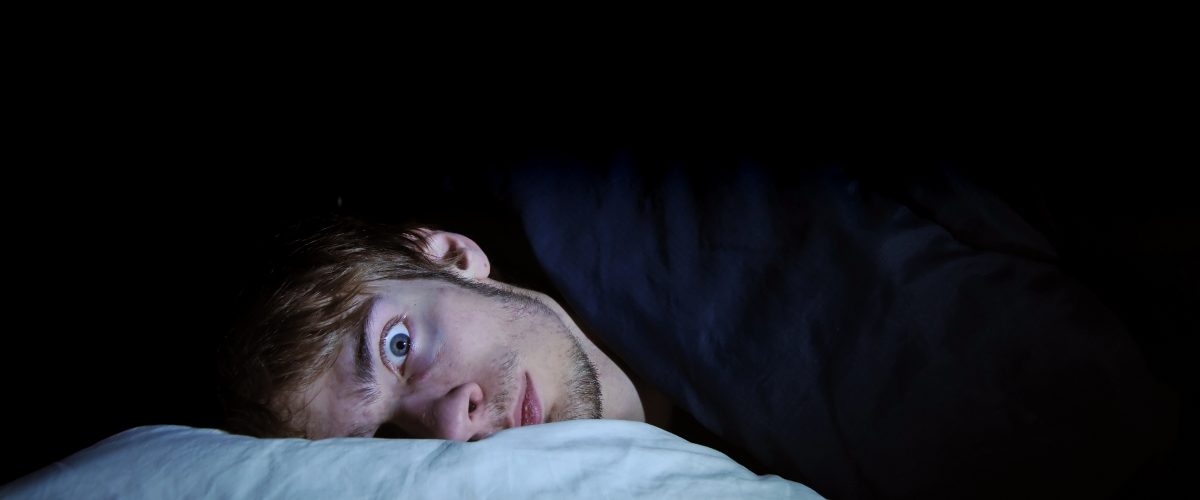By Virginia Gurley, MD, MPH
MB (Marc Braman, MD, MPH):
Our topic this session is “Mental Activity and Sleep”. And again, welcome Dr. Gurley.
VG (Virginia Gurley, MD, MPH):
Thank you, Dr. Braman.
MB:
So in previous sessions we talked about how sleep affects physical and mental health, but how about we flip the question around and ask, what do we know about how mental activity affects sleep?
VG:
That’s a very good question. If we think about mental activity as planning, problem solving, worrying, rehashing, or anticipating events related to your life, there is strong evidence that bringing these daytime concerns into your sleep time blocks high quality sleep.
MB:
So how does thinking block something as important as sleep?
VG:
It’s not fully understood, but what studies do show is that thinking keeps the body in a state of alertness or a state of being awake, and that’s the opposite of what the body needs to fall asleep and stay asleep.
MB:
Okay, that makes sense. So how can someone work with his or her mental activity to improve sleep?
VG:
It sort of depends on how often a person has trouble calming their thoughts and how strong their anxiety is about having trouble sleeping. So if a person as struggled for many months or years with poor sleep because he or she has difficulty switching out of thinking mode, then those people usually need to rebuild most if not all of their habits related to preparing for and going to sleep, getting to sleep, and getting up in the morning.
MB:
So that sounds rather complicated. How does a person actually do that?
VG:
It’s not as complicated or difficult as it sounds. There’s a well developed treatment approach called cognitive behavioral therapy, or CBT, that is a systematic process to help a person reset habits. And CBT has been shown to be quite effective for people who have high anxiety about how hard it is to get to sleep and stay asleep throughout the night.
MB:
Okay, so CBT can help us manage the things around enabling good sleep. One of the most common issues that I run into working with patients is what I call the “Can’t Shut it Off” condition, where people are just in this thinking state that you were just referring to, they’re worrying, they’re kind of uptight. We all have life events, whether it’s difficult with work or family, or the loss of a loved one, or a car accident that make it hard to shift out of thinking mode and getting good sleep.
VG:
Yes, life challenges can really make it hard to get good sleep when you need it the most. One sleep health habit that everyone should develop that can be particularly helpful in times of stress is to develop a routine or ritual where you intentionally bring your day to a close, and you invite sleep.
MB:
So how do you invite sleep?
VG:
Basically you go to bed, you spend a few minutes reviewing your day, and finding events from the day that you’re thankful for or were successful, and consciously setting aside the problems and difficulties that are ahead of you tomorrow or in the future. Also, you welcome the benefits of sleep that will help you resolve and overcome those challenges.
MB:
So what I’m hearing in what you just said is gratitude, being thankful, and a positive focus, turning your mind towards positive things. What about if you just can’t get to sleep, or you wake up in the middle of the night and find that thoughts and worries are keeping you awake?
VG:
There is a technique called “Mindfulness Meditation” that can be very helpful. “Mindfulness Meditation” is an easy-to-learn technique that helps you focus your mind on sensations in your body, like focusing on your breathing; that is the most common one. This technique can also help you find and release tension spots in your body that also go along with sleep-blocking worry and stress.
MB:
This sounds extremely useful, I know it has been very useful for me in terms of using these techniques in learning to “turn it off” and to facilitate our body and mind being in a condition ready for really effective sleep.
Thank you so much, Dr. Gurley.
VG:
Thank you, Dr. Braman.
Sleep and emotions: A focus on insomnia. Baglioni C, Spiegelhalder K, Lombardo C, Riemann D. Sleep Medicine Reviews. 2010;14, 227-238. doi:10.1016/j.smrv.2009.10.007.
Evaluation of a brief treatment program of cognitive behavior therapy for insomnia in older adults. Lovato N, Lack L, Wright H, Kennaway DJ. Sleep. 2014; 37(1):117-126. doi:10.5665/sleep.3320.
Mindfulness meditation and improvement in sleep quality and daytime impairment among older adults with sleep disturbances: A randomized clinical trial. Black DS, O’Reilly GA, Olmsted R, Breen EC, Irwin, MR. JAMA Intern Med. 2015. 175(4):494-501, doi:10.1001/jamainternmed.2014.8081.





